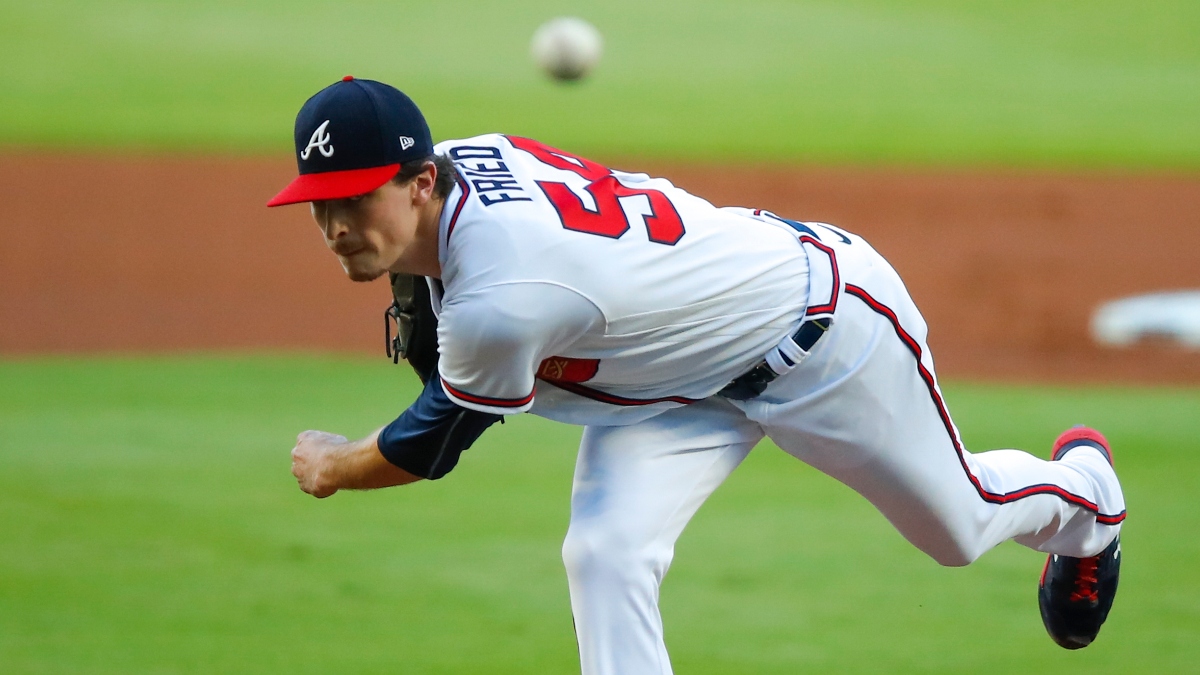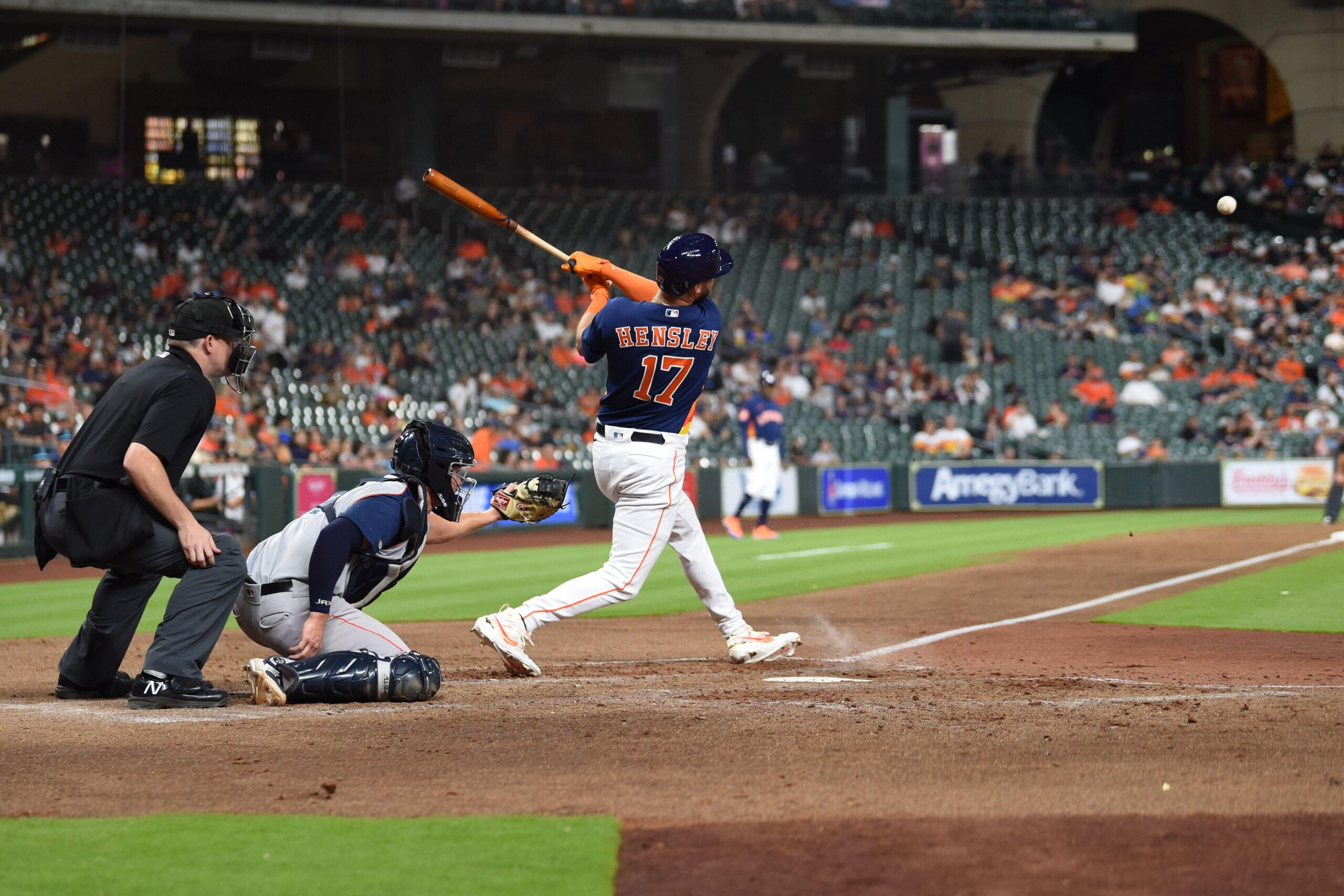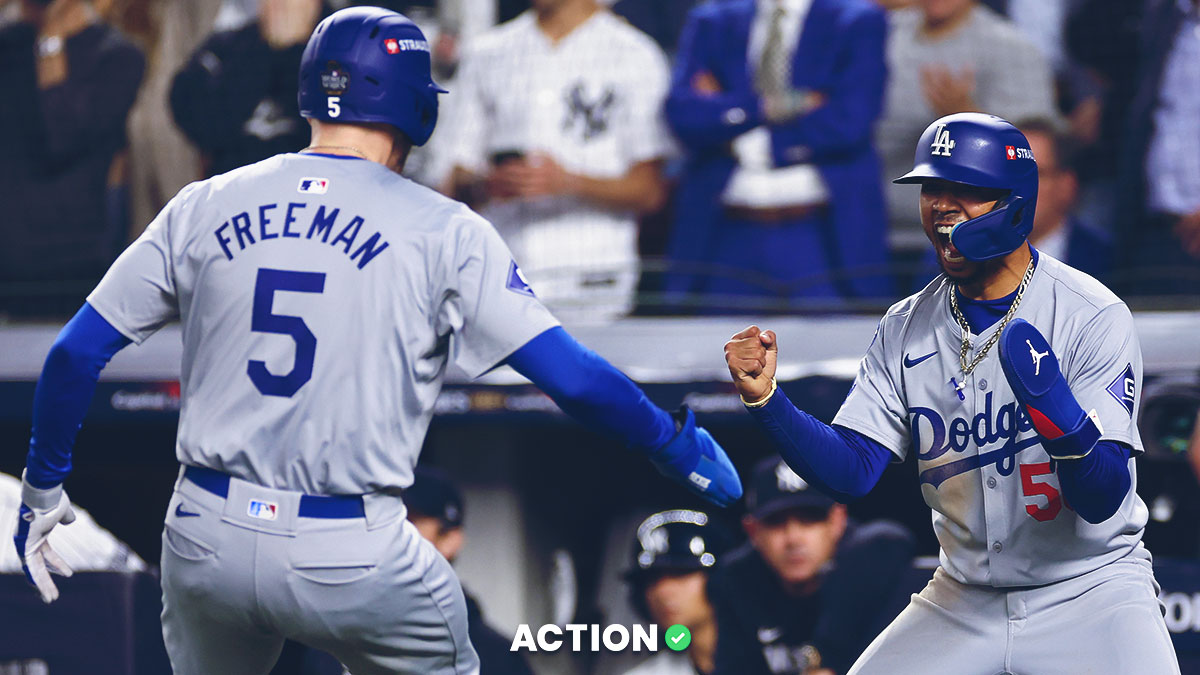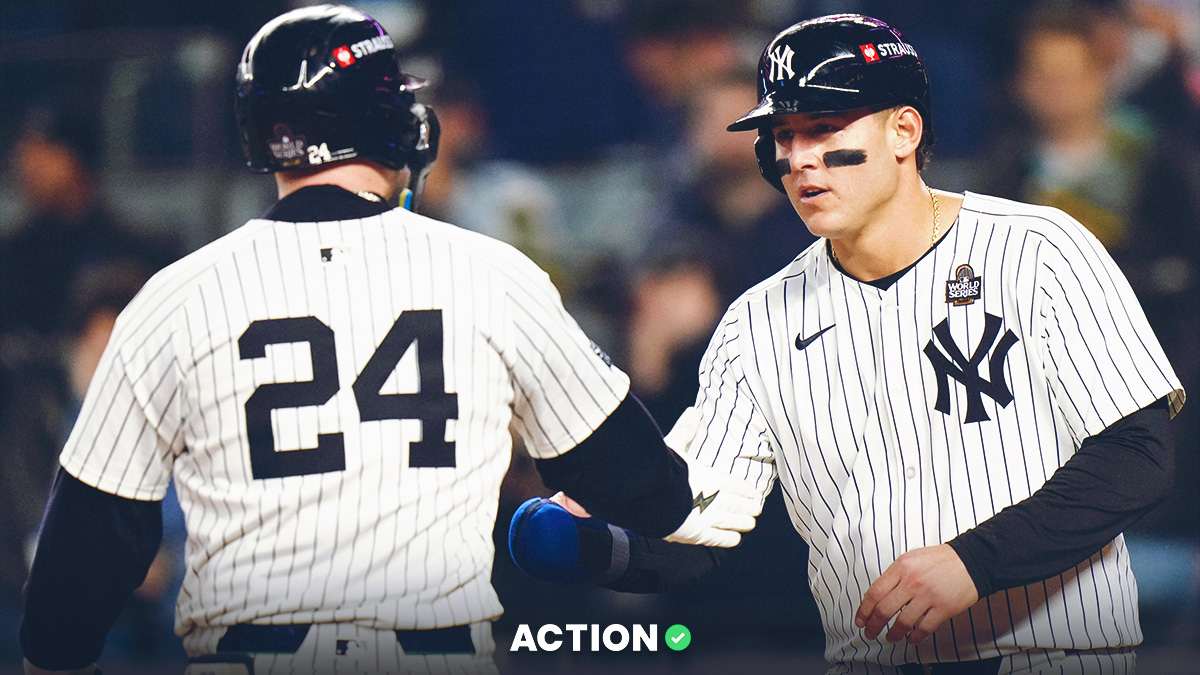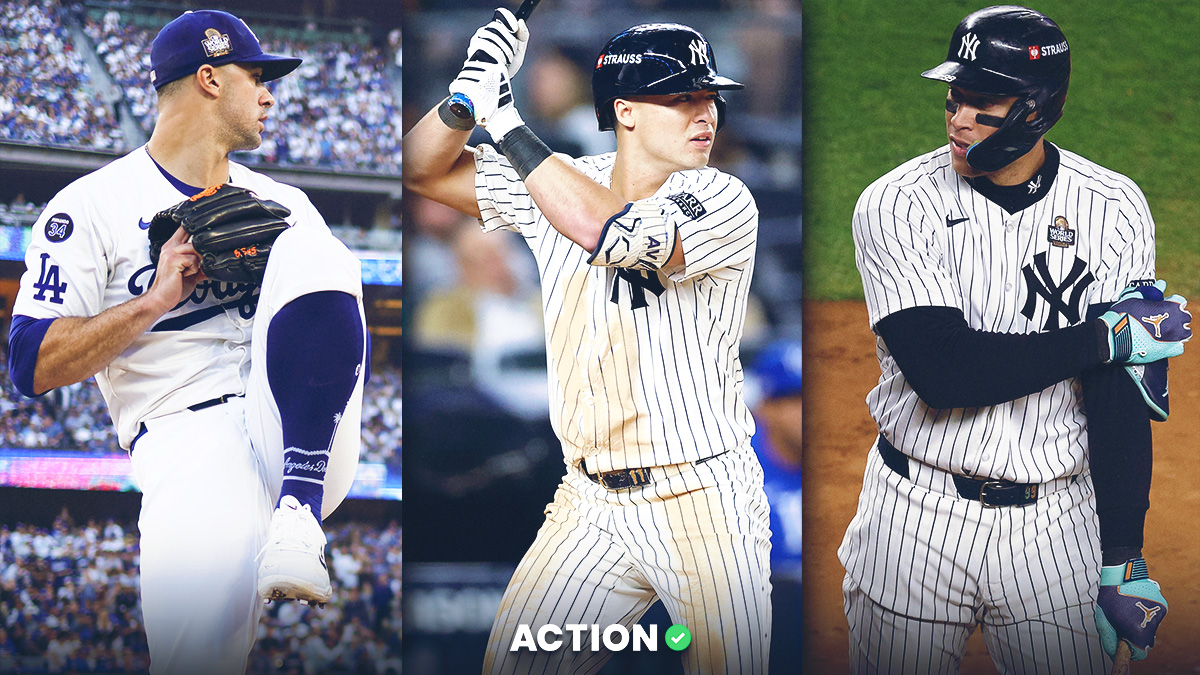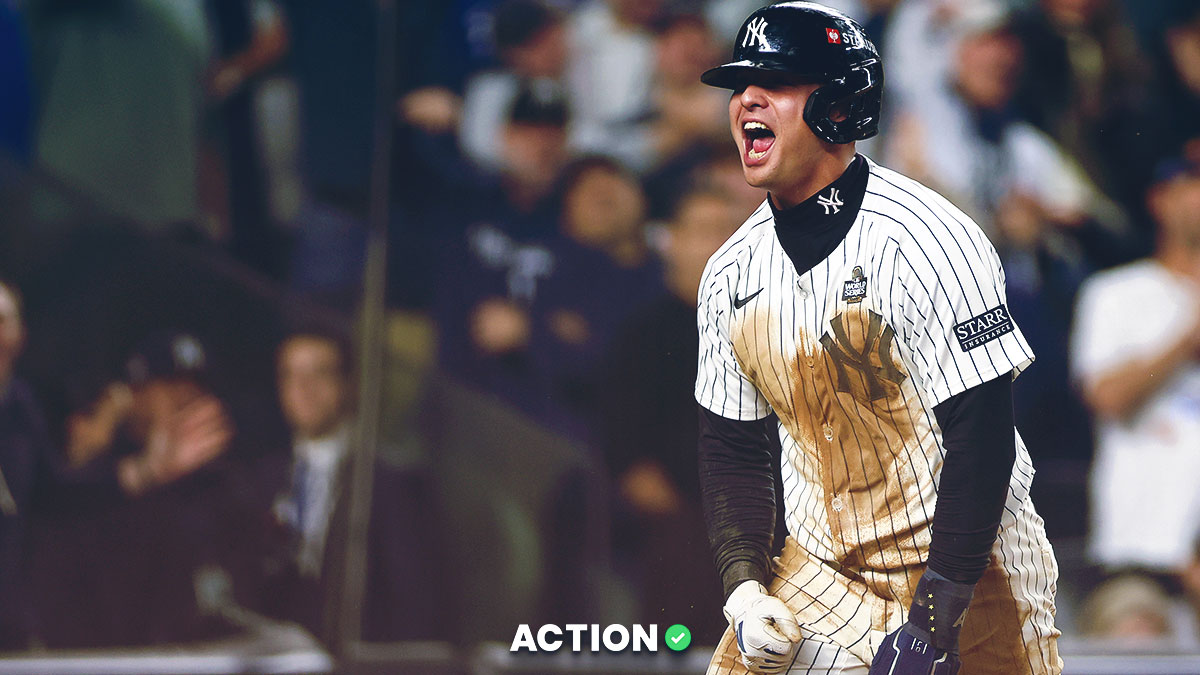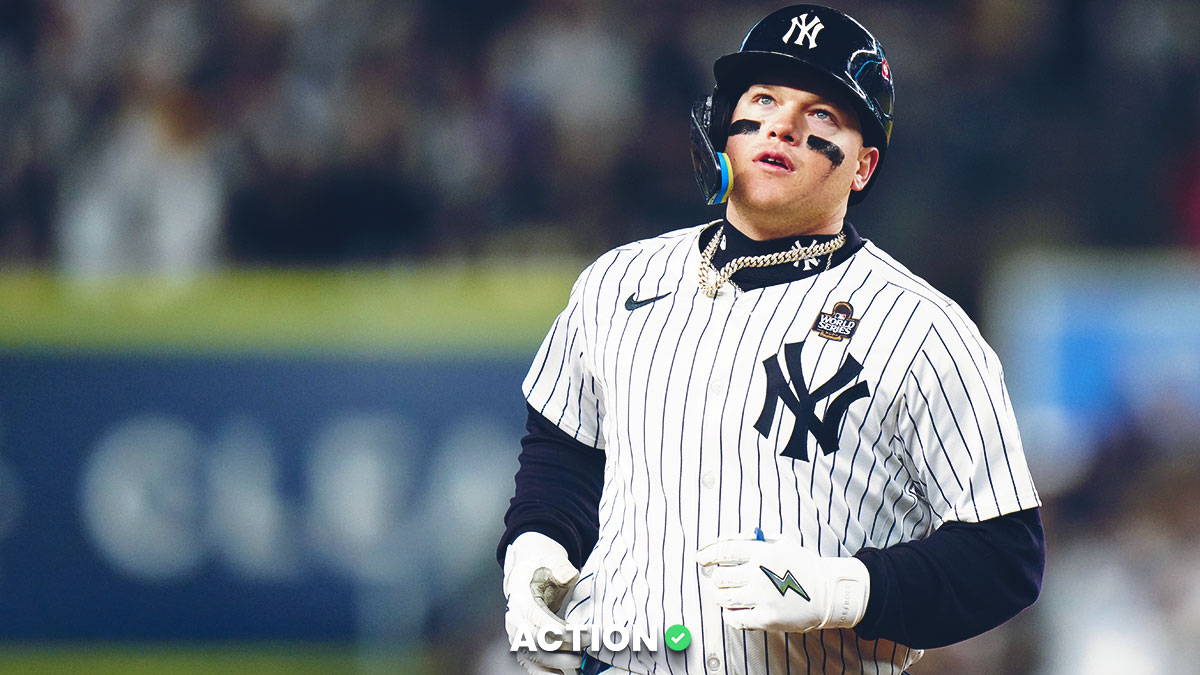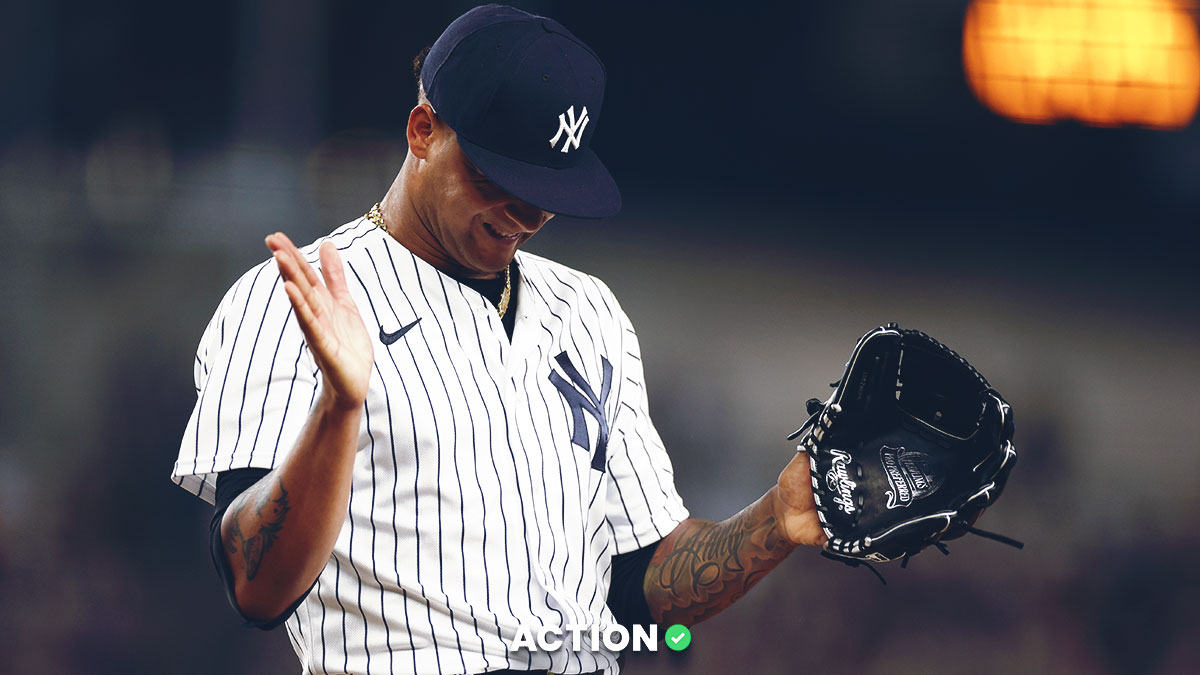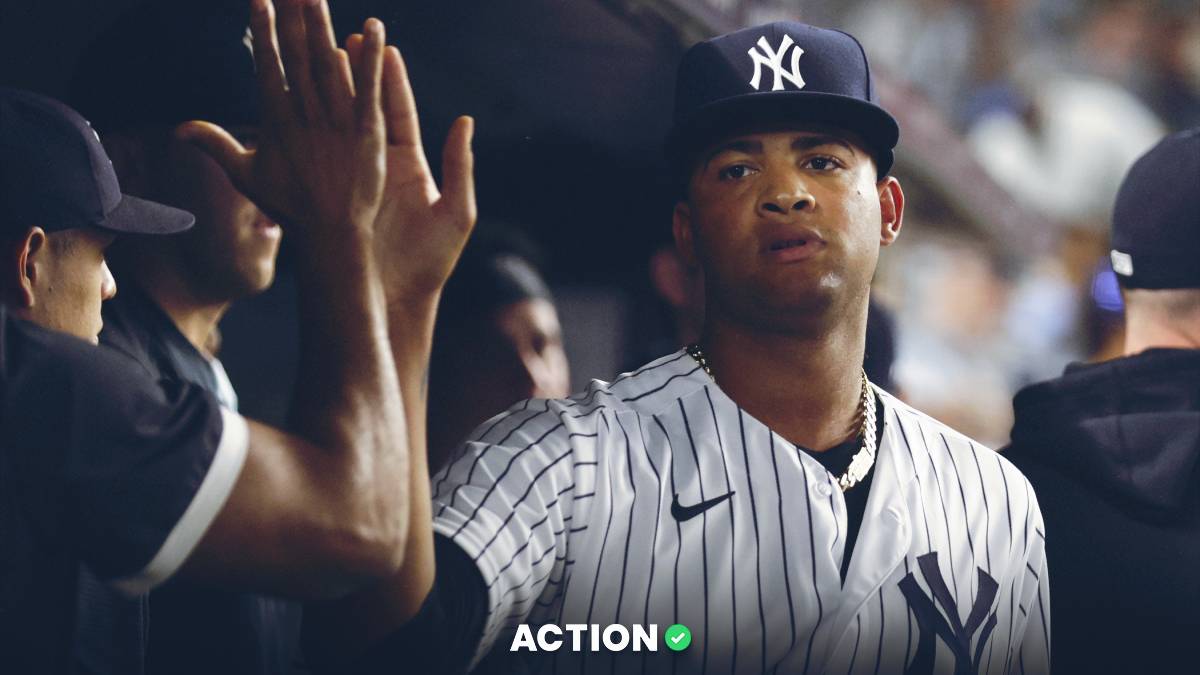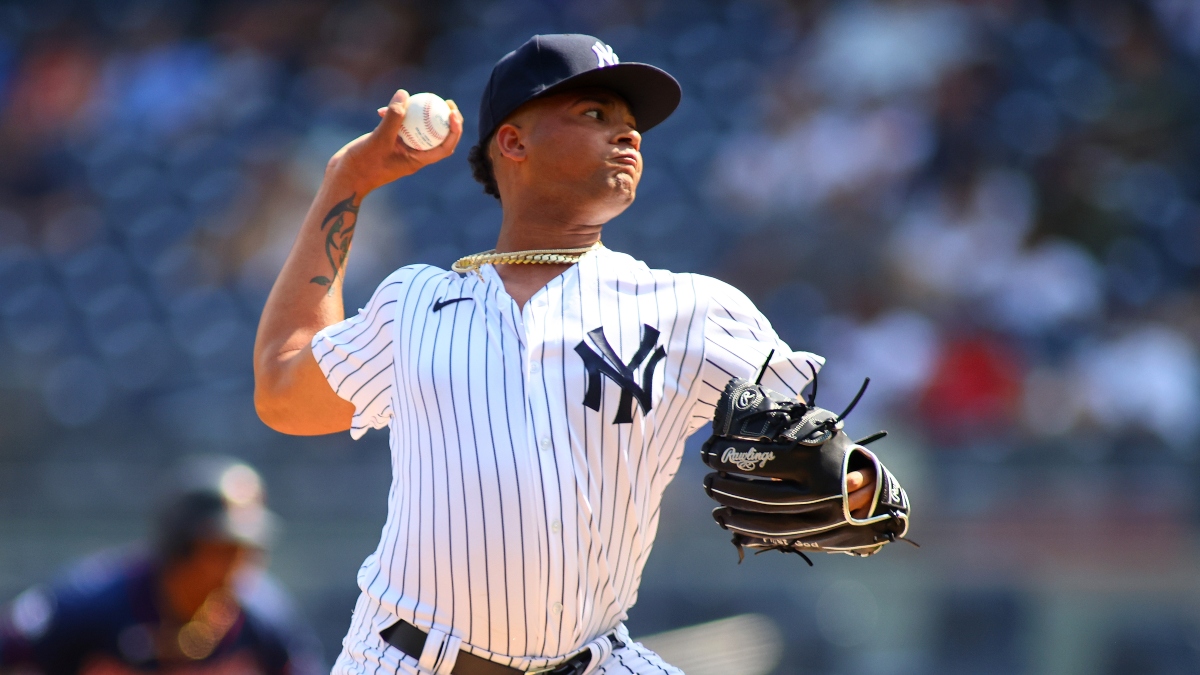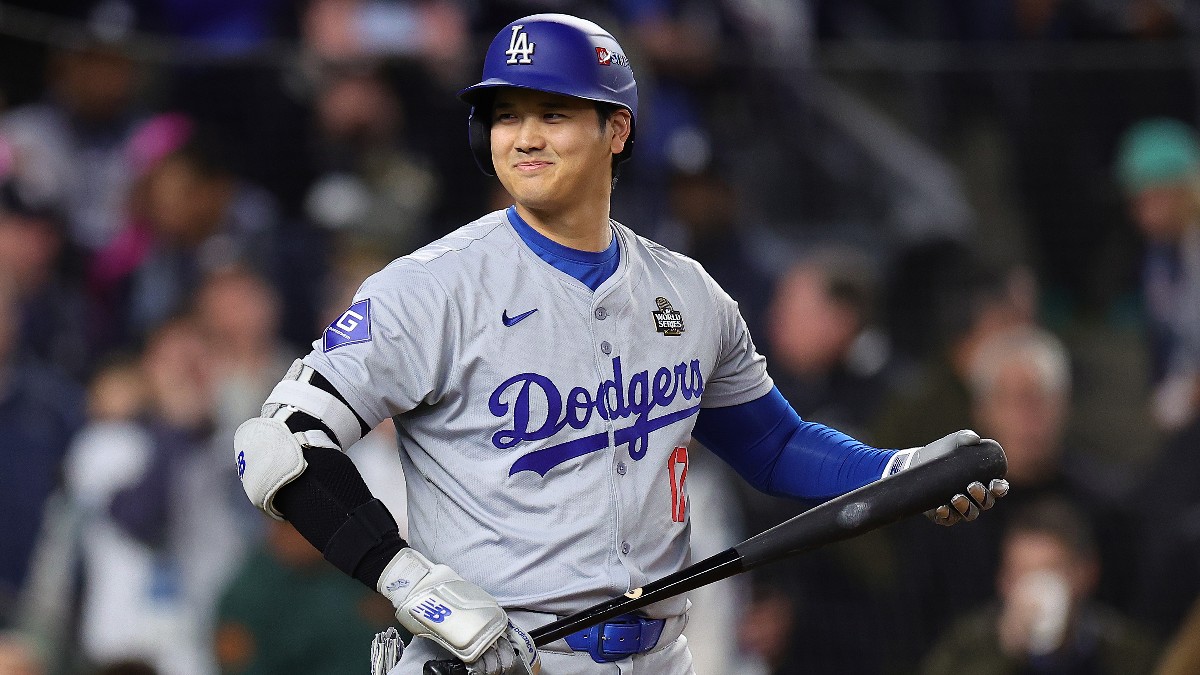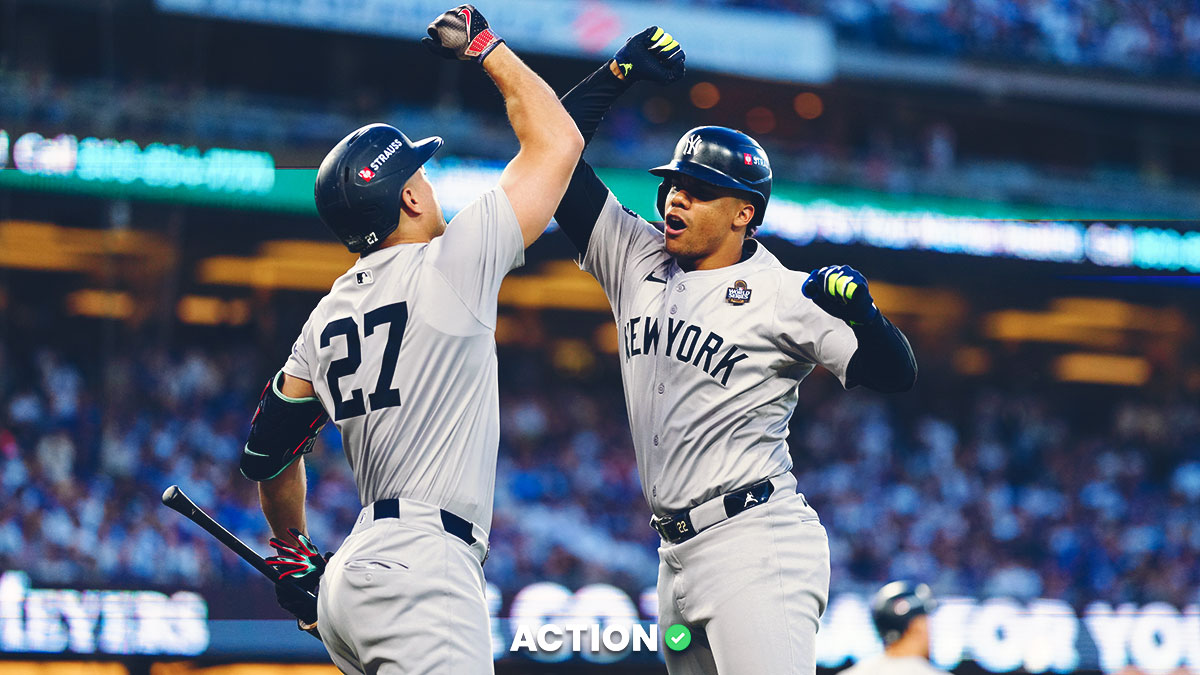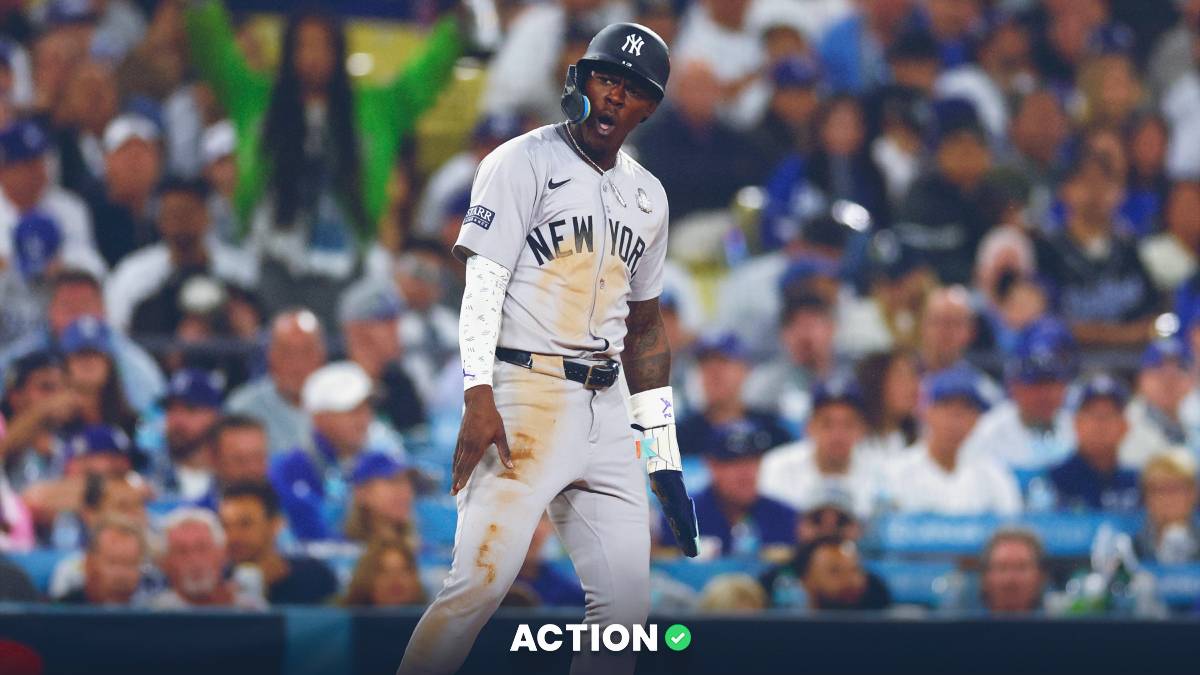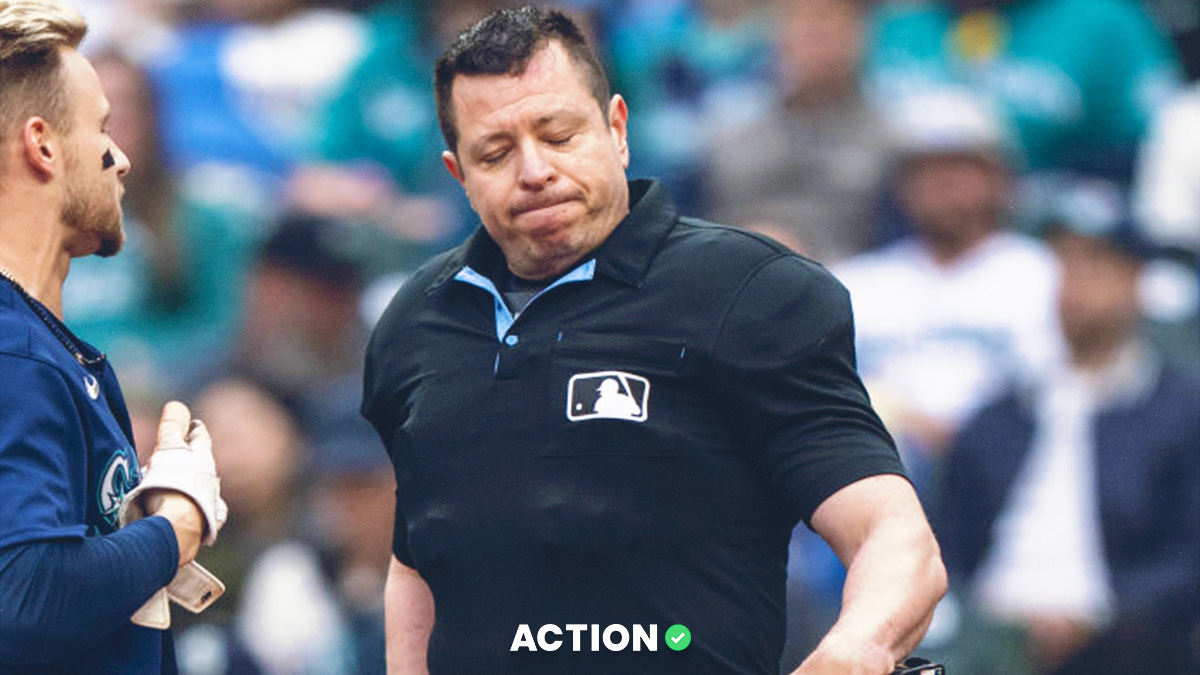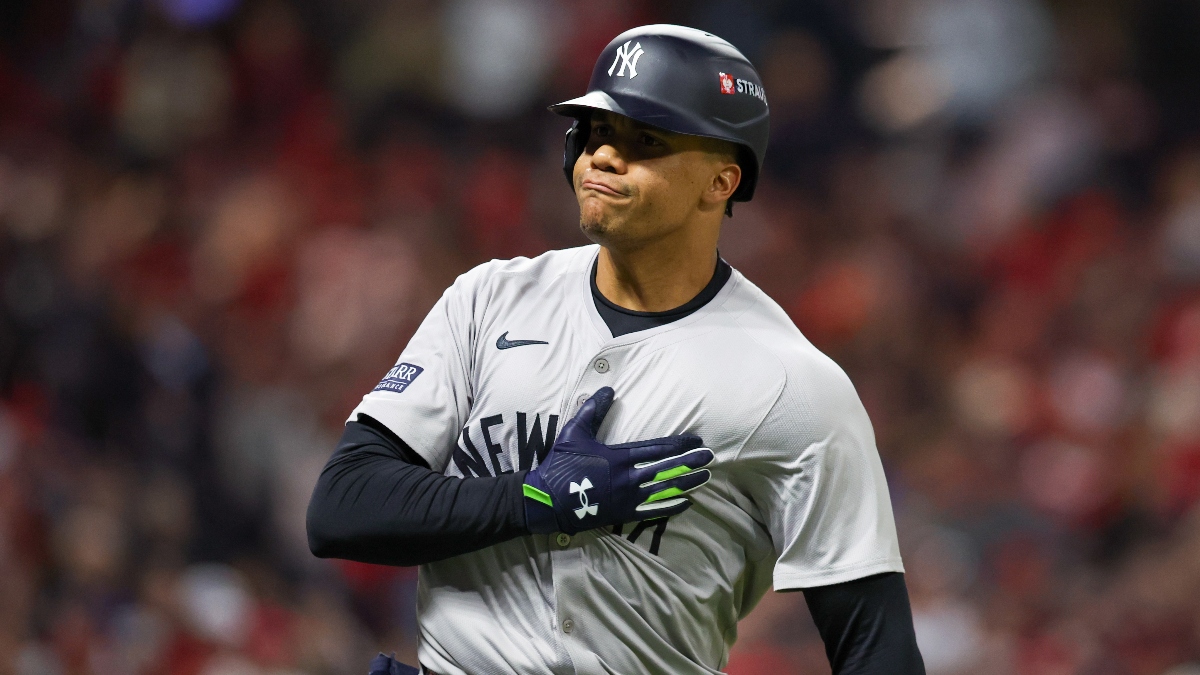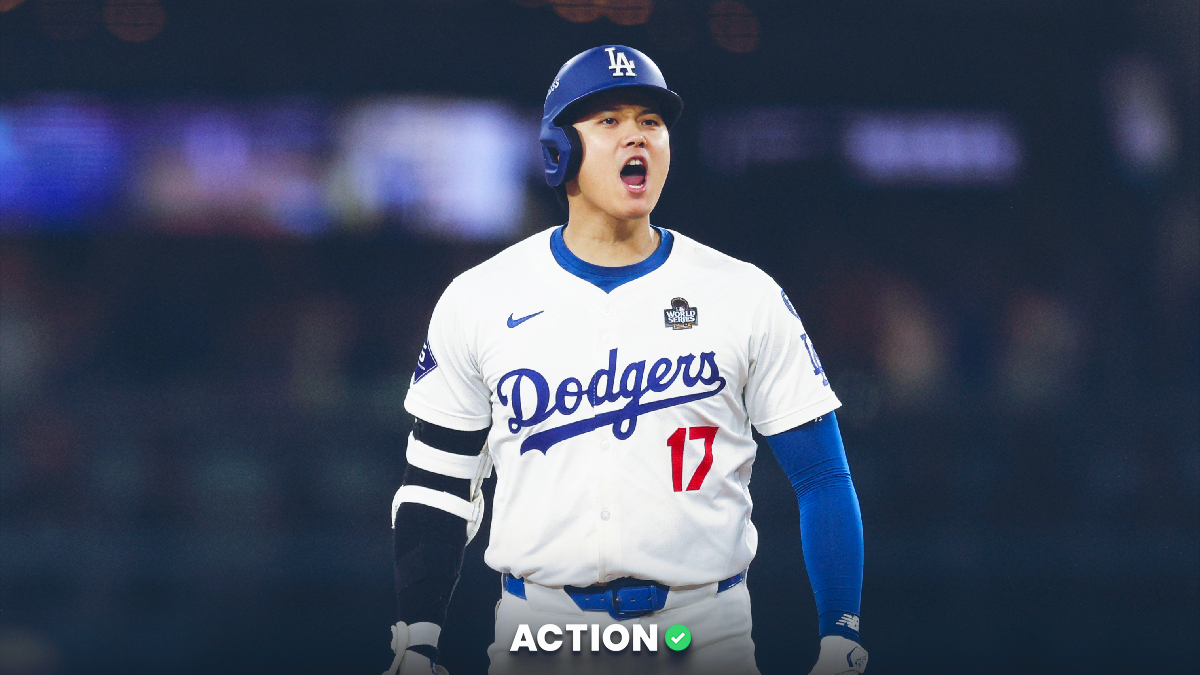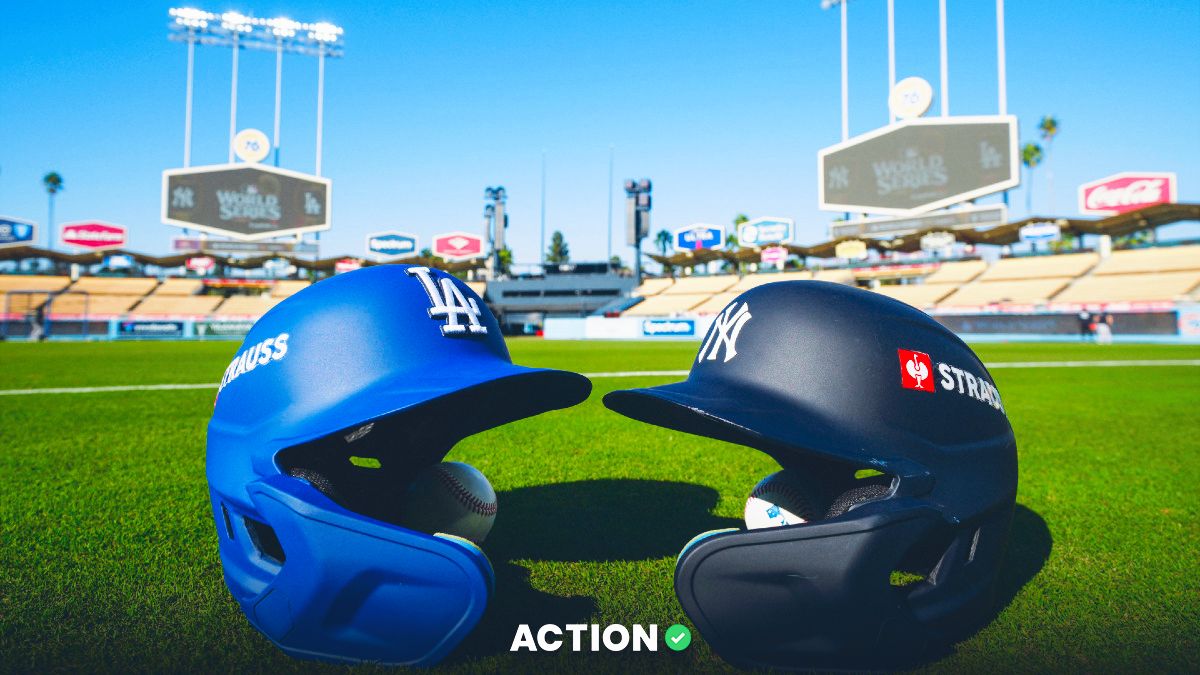Reds vs. Braves Game 1 Odds
Looking for Thursday's Game 2? Click here.
| Reds Odds | +110 [Bet Now] |
| Braves Odds | -130 [Bet Now] |
| Over/Under | 7.5 (-105/-115) [Bet Now] |
| First Pitch | 12:08 p.m. ET |
| TV | ESPN |
Odds as of Tuesday night and via PointsBet, where you can get $250 FREE instantly after signing up AND your bets automatically sync to the Action app.Learn more about BetSync here.
Much has been made about the failure of the Atlanta Braves in the postseason. Perhaps some of that criticism has been warranted. After all, the Braves haven’t won a postseason round in their last nine playoff appearances.
This will be Atlanta’s third consecutive postseason following its third consecutive National League East title. Usually those are steps in the right direction, particularly when you have a team with a young nucleus like the Braves do.
In 2018 they lost in the NLDS to the Dodgers who went on to win the pennant. And in 2019, they lost in the final game of a best-of-five series against the Cardinals when Mike Foltynewicz imploded and gave up seven runs (6 ER) in the first inning while only retiring one batter. Atlanta will hope its core of young players like CF Ronald Acuna Jr., 2B Ozzie Albies and SP Max Fried can build upon its two playoff experiences.
Fried gets set to make his first postseason start against a Cincinnati Reds team that went 12-4 in its final 16 games to clinch its first postseason berth since 2013.
As impressive as the Reds' September run was, the truth is that the schedule broke right for them as they had the advantage in many of the pitching matchups down the stretch.
That won’t necessarily be the case in Game 1 of this Wild Card Series.
Cincinnati Reds
Cincinnati spent over $160 million on players in the offseason and still needed the final weekend in the regular season in order to clinch a playoff spot. While the Reds went 12-4 to close out the year, much of their offensive struggles from earlier in the year still remained down the stretch.
The Reds' slash line this season was .212 AVG / .312 OBP / .403 SLG. They had a wRC+ rating of 91 on the year which was below league average and placed them 21st in all of baseball. And even if we compare those year-long numbers with just their last 14 games, we’ll see that they weren’t much better as their slash line was .209 AVG / .314 OBP / .410 SLG.
Aside from having the advantage in starting pitching for many of their games down the stretch, the Reds maintained a strong .201 ISO — a measure of raw power based on the difference between SLG and AVG — which was up from .191 during the season. Now they’ll face Atlanta’s Max Fried in Game 1 who hadn’t given up a home run all year until his last start of the season.
The reality is that it’s very difficult to hit home runs in the playoffs because you’re often facing premier pitchers in these games. And while the Reds will have a premier pitcher of their own in Trevor Bauer on the mound, he’ll have to pitch with very small margin for error, particularly if the Reds continue to struggle to create runs. Don’t get me wrong, Bauer has been phenomenal. He went 5-4 with a 1.73 ERA and 0.79 WHIP in the regular season. However, his 2.88 FIP, which is higher than his ERA, makes him candidate for regression in the playoffs.
Cincinnati fans may not like this, but of Bauer’s 11 starts this season, only three of came against a team that finished above .500, and the Reds were 1-2 in those starts.
Contrast that with Fried, who made five starts against teams that finished above .500 with the Braves going 5-0 in those outings.
Atlanta Braves
Atlanta lost its last two games in the regular season and was outscored, 17-3. A closer look at the box scores actually reveals that Atlanta played it safe by not using any of its starting pitchers in those games. After all, the Braves had already clinched the division four days earlier and could afford to shuffle some pieces around at the end of the season.
The Braves had tremendous year offensively. As a team they were second in batting average (.268), home runs (103) and slugging (.483). As good as their offense was, Max Fried probably had an even better season. Fried went 7-0 on the year with a 2.25 ERA and a 1.09 WHIP. Like Bauer, Fried could also be in line for some regression as evidenced by his higher 3.10 FIP.
Fried throws five different pitches: a four-seamer (42%), curveball (22.5%), slider (20.7%), sinker (9.9%) and changeup (4.9%). To get an idea of how dominant he's been, each pitch in his arsenal graded out at as above average in runs allowed this season. He may look to feature more of his off-speed pitches against Cincinnati as the Reds are 15.8 runs below average when facing a slider and 13.2 runs below average against the curveball.
Fried has made one start against the Reds which resulted in a 4-1 win. The Reds current lineup has 17 at-bats against him and has hit .059 with a .109 wOBA, .118 SLG and .059 ISO. On the other hand, Braves hitters have 68 at-bats against Bauer and they’ve hit .265 against him with with a .351 wOBA, .515 SLG and .250 ISO.
Betting Analysis
Atlanta is simply the more complete team in this series and I think we'll see that not only throughout this series, but especially in Game 1. Bauer faced the Braves twice last season, including one start when he was still on the Indians. His teams lost both of those outings.
For Cincinnati to really have a chance in Game 1, Bauer may need to take the ball and not relinquish it for the entire game. The Reds bullpen had a 4.53 ERA and 4.64 FIP on the season, whereas the Braves' relievers finished with a 3.50 ERA and 3.91 FIP.
My model projects the Braves as -148 favorites. With PointsBet listing them as -130 favorites, I'll look to snap up that extra value and back the home team in this spot.
The PICK: Braves ML -130 (Play up to -145) [Bet Now at PointsBet, and win $125 if the Braves get a hit.]


